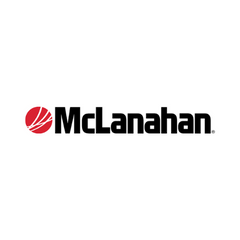The general manager of the largest dairy in Alaska said the facility would close Dec. 29, laying off 15 to 18 employees. Palmer-based Matanuska Creamery has failed to make payments on about $880,000 in state loans, according to the state. The Board of Agriculture and Conservation voted in December to deny a request that would have allowed the business to avoid a $50,000 payment.
"At some point you just have to draw the line. And that's what the board did. They said, `We've had enough,' '' said Assistant Attorney General Bob McFarlane, who is overseeing efforts to collect on the dairy's debts.The closure ends the latest chapter in the trouble-plagued, heavily subsidized quest to build a sustainable dairy industry in Southcentral Alaska. Matanuska Creamery launched in 2008 after the closure of the state-run dairy Matanuska Maid left farmers with nowhere to sell their milk.
Click here to read Progressive Dairyman's 2011 story about Alaska's dairy industry.
Using some equipment from the old Mat Maid plant, the new dairy soon fell behind in payments for milk, farmers say. Two prominent Valley farmers said they are owed hundreds of thousands of dollars by the company and have long expected the closure.
"That plant probably could have handled 10 times the volume that we had,'' said Point MacKenzie farmer Wayne Brost. "So maybe in the economies of scale, it was overbuilt.''
Located on the Palmer-Wasilla Highway, the dairy bought raw milk from dairy farms to create milk, ice cream, cheese and other products sold in Valley and Anchorage stores.
It has recently produced about 600 gallons of milk a day – down from a peak of about 2,100 gallons – and is the milk supplier for the Mat-Su Borough School District, said general manager Karen Olson.
"The owners have been trying to keep this place alive for so long. Including myself buying a herd of cattle and trying to improve the supply of raw milk ourselves,'' Olson said.
The creamery's milk demand supports about 230 to 250 adult cows that will likely be slaughtered in the coming months, she said.
Brost said about 70 to 100 of his cows produce milk for the dairy – milk he'll have to start dumping after Sunday.
Jean and Bob Havemeister began building a smaller-scale dairy in 2011 because Matanuska Creamery was failing to make payments for milk produced by cows on the Havemeister farm, Jean said. Her son, Ty, runs the new business.
"The writing's been on the wall for the last three years,'' Ty Havemeister said of Matanuska Creamery. "As far as the farmers, it's not a big shocker that they're going under.''
Olson argues that the state could have done more to keep the dairy afloat.
The agriculture board's job is to encourage agriculture in Alaska and it has abandoned that mission by refusing to accept new conditions on her loans, she argues.
Olson has complaints about the handling of the loans, she said, and what she calls the "interlocking'' relationship between farmers and the state.
Specifically: Jean and Bob Havemeister's daughter-in-law, Franci Havemeister, is director of the Agriculture Division and served in that role at the time the agriculture board approved $500,000 in loans to the Havemeister farm in August of 2011.
(Franci Havemeister recused herself from discussions on the loans, according to minutes of the meeting.)
Olson said she filed an ethics complaint with the state attorney general's office this month, targeting that family relationship in hopes an emergency investigation would suspend action on her own loans.
Jean Havemeister said she is aware of the complaint. Franci Havemeister "has no control over any of the loans,'' she said.
Olson said she has appealed to the governor's office and local legislators, likening the closure of the creamery to shuttering a small oil well.
"The industry is basically broken now as an industry. It'll have to restart small, if it does,'' she said.
Matanuska Creamery is the biggest of three dairies in Alaska, according to the state Division of Environmental Health. The other two are the Havemeister creamery and the Northern Lights Dairy in Delta Junction.
Brost said he hopes the Havemeister dairy grows fast enough in the next two or three months to buy milk from his cows in addition to processing milk produced on the Havemeister's Mat-Su farm. PD
—AP Newsfinder




